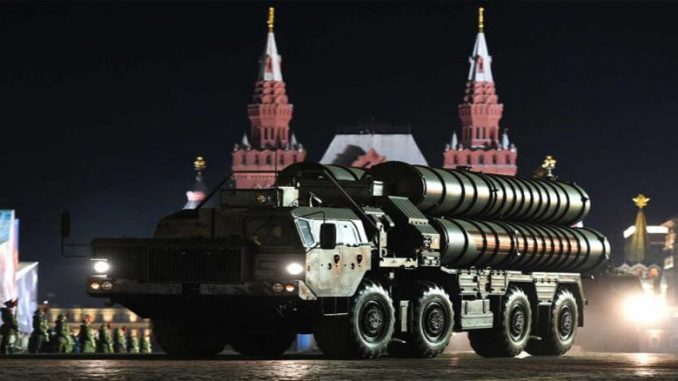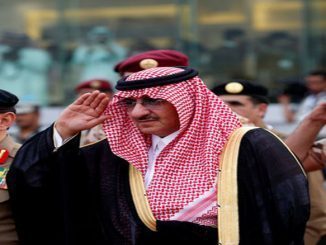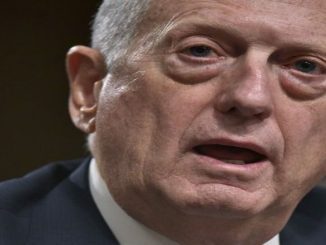
 BY: Dr.Said Elhaj*
BY: Dr.Said Elhaj*
Since its access to power in Turkey in 2002, Turkey’s Justice and Development Party (AK Party) has paid great attention to two important issues that were neglected before, due to their strategic implications on the future of Turkey: namely, energy security and armament.
With regard to the armament issue, Ankara relied for decades on importing weapons from abroad, particularly from Western countries. But the governments of the Justice and Development Party have embarked on a project consisting of two parallel tracks: importation and local manufacturing. The country has progressed significantly in manufacturing that tanks, armored vehicles, warships, helicopters, drones and others are all produced internally.
After months of bilateral negotiations, the Turkish President announced a few days ago concluding a deal with Russia for the purchase of the S400 anti-aircraft missile system, which was also confirmed by Russian sources. Erdogan even said that a deposit for the deal has already been paid, which means that the next step will be agreement on the mechanism of transport and deployment on Turkish territory.
Of course, there were many reservations from Western countries as Turkey is a member of the North Atlantic Treaty Organization (NATO), which considers Russia its biggest threat / enemy although official statements later confirmed that any NATO member state could decide where to obtain its own weapons without interference from the alliance or its member states.
The Russian-made S400 missile system is one of the best air defense systems in the world if not the best of them all. The S400 system is an upgrade of the Russian S300 family and is intended to engage aircraft, ballistic and cruise missiles. It is claimed that the S-400 is capable of detecting and engaging targets to a range of 400 km, depending on the missile variant used. It is also claimed that this air defense missile system is capable of engaging stealth aircraft.
Despite the fact that a large number of countries have expressed their desire to buy Russian S400 system, Moscow has made this move only with China and Turkey today.
In this context, this step goes beyond Turkey’s purchase of weapons from another country (Russia). In fact, Turkey’ purchase of the Russian S-400 missile system has several strategic dimensions, the most important of which are:
First: Turkey strengths its air defenses
Turkey lacks an air defense system and ballistic missiles, which made it at a previous stage subject to a possible missile attack from its adversaries in the Syrian crisis (the regime, Tehran, Moscow). This led the NATO to deploy Patriot batteries on the Turkish territory, which were later withdrawn by European countries on various pretexts.
Today, Ankara is counting on more than the possession of this defense weapon; in fact it counts on the transfer and localization of technology to go in line with its project of local defense manufacturing. Russia agreed to transfer the technology of S-400 anti-ballistic missile systems, which constituted the most advantageous aspect of the deal between the two countries. However, this was impossible with the NATO countries from which Turkey tried to buy air defense systems before.
Second: Supporting the course of Turkish-Russian cooperation
The S400 system has been given unprecedented momentum. There is no longer much talk about Turkish-Russian economic and commercial cooperation, the import of natural gas (55% of Turkey’s need of natural gas comes from Russia). There is no longer much talk about Turkish-Russian mega projects such as the ‘Ak kuyu Nuclear Power Plant’, the ‘Turkish Stream’ project for the transfer of natural gas, the common interests and threats in Syria. In fact, we are dealing today with a clear strategic cooperation that includes an extraordinary weapon that Moscow has not yet sold to any other country except for China, which, like Russia, has an anti-West attitude. This is an important sign of Turkey’s position in the future Russian strategic perspective, if not currently.
Third: A violent shake for Turkish-Atlantic relations
Throughout the Cold War, Ankara remained an advanced base for NATO in the face of Soviet expansionism according to the Marshall Plan. However, Turkey –under the rule of the AK Party – has over the last few years been seeking a kind of relative independence and equitable relations with its Western “allies”, a trend that never pleased them.
Turkey is currently experiencing one of the most strained periods in its relations with the West: including the United States, the European Union, and the NATO. Recently, the European Parliament has voted on a draft resolution recommending a freeze on Turkey’s EU membership talks. Also, German Chancellor Angela Merkel said that she intends to activate this track next October. Moreover, German Foreign Minister Gabriel Sigmar called for suspending arms exports to Turkey completely amid calls for reconsidering Turkey’s NATO membership as well.
Turkey has long complained that it is subject to an undeclared ban on arms sales from its supposed Western allies, especially regarding defense systems, through procrastination and unjustified extremely high prices, in addition to rejection of the idea of technology transfer to Turkey, prompting the latter to negotiate with China first then with Russia after that.
However, the path of divergence between Ankara and its Western allies, and its rapprochement with Moscow is not new. It is the result of years of accumulating measures, including a Turkish request to join Shanghai Cooperation Organization (GCO) led by Russia and China against NATO.
This course has suffered a severe setback after the downing of a Russian fighter in November 2015 by a Turkish warplane, but later the relations between the two countries were resumed and normalized. If the Turkish-Russian relations further developed, it would be a milestone in Turkish-Western relations and a compass for the Turkish foreign policy. This should be viewed as a great sign of success for Turkey in the first place, and also for Russia, which has been trying for years to contain Turkey away from NATO and the United States.
NATO’s main problem towards the S400 missile system is that it is different from its own defense system and therefore coordination between them is almost impossible. Moreover, this strategic weapon classifies targets as “friendly” or “enemy”. For example, Russia is classified “enemy” for NATO, but Turkey (as a NATO member) is classified “friend” for the alliance and vice versa.
This means that there are certain challenges for Turkey itself, and it needs – as some strategic experts say – another complementary system to encompass all potential “hostile” targets from the East and the West. But the most important challenge for Ankara’s purchase of such system is related to its options between NATO and Russia and the strategic vision of its long-term foreign policy.
Ankara confirms that this deal is a sovereign right to secure its interests and defend itself, and this is true. It also says that this matter is purely technical or procedural and does not pose any threat to NATO or represent any change in Turkey’s relations with the alliance, which is debatable and I think there will be much debate about it in NATO corridors and in bilateral meetings with Turkish politicians from now on.
Will the United States and European countries realize the risk of losing Turkey in favor of Russia and try to mend the situation or will there be further divergence between them? Has Turkey already made its own decision and that shifting to a kind of balance with the East is Just a matter of time?



